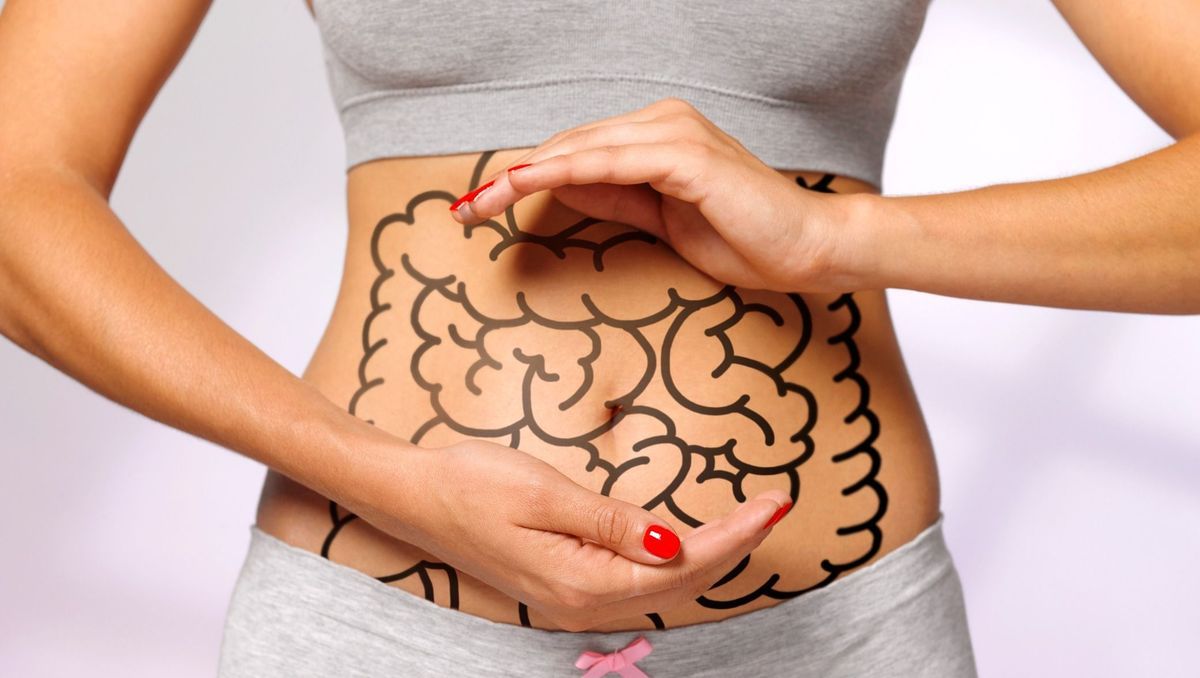SUMMARY
Understanding digestion
Causes of poor digestion
Symptoms of poor digestion
Improve digestion
Which plants can relieve digestive problems?
INTRODUCTION
Understanding digestion

Causes of poor digestion

Inadequate diet
- Excessive consumption of fats, sugar and processed foods.
- Eating too quickly or not chewing food enough can also disrupt the digestive process.
Stress and anxiety
- Chronic stress can affect digestive function by causing muscle contractions in the stomach and intestines.
Digestive disorders
Drugs
- Certain medications, such as antibiotics, can disrupt the intestinal flora.
Symptoms of poor digestion

Symptoms of poor digestion can vary from person to person, but common ones include:
-Bloating
-Gas
- Abdominal pain
- Heartburn
-Diarrhea or constipation
-Nausea
If you regularly experience these symptoms, it is important to consult a healthcare professional to determine the underlying cause of your poor digestion and potential treatment.
Improve digestion
 Fortunately, there are many ways to improve digestion and reduce symptoms. Here are some helpful tips:
Fortunately, there are many ways to improve digestion and reduce symptoms. Here are some helpful tips:
Eat a balanced diet
- Eat foods rich in fiber, such as fruits, vegetables and whole grains.
- Avoid processed foods, high in fat and sugar.
Chew your food well
Take the time to chew your food properly to aid digestion.
Manage stress
Practice meditation, yoga, or other relaxation techniques to reduce stress.
Exercise regularly
Physical exercise promotes intestinal motility and can improve digestion.
Limit alcohol and caffeine consumption
These substances can irritate the gastric mucosa and worsen poor digestion.
Which plants can relieve digestive problems?
Digestive problems such as abdominal pain, constipation, diarrhea, and stomach aches can also be treated naturally using various herbal remedies.
Here are some herbs commonly used to relieve digestive problems:
Lemon balm and its benefits:

Stomach Aches Relief
Lemon balm is known for its antispasmodic properties, meaning it can help relax the muscles in the intestines and stomach. This can be particularly helpful in relieving cramps and abdominal pain associated with digestive disorders such as irritable bowel syndrome (IBS) or functional dyspepsia.
Reduced bloating
The essential oils found in lemon balm can help reduce bloating by promoting the elimination of intestinal gas.
Stimulation of bile production
Lemon balm can stimulate the gallbladder to produce bile, which aids in the digestion of fats and may relieve symptoms of slow digestion.
Calming effect on the nerves
Stress and anxiety can negatively impact digestion. Lemon balm is also known for its relaxing and calming properties on the nervous system, which can help reduce stress-related digestive symptoms.
How to use lemon balm for digestion?
There are several ways to incorporate lemon balm into your daily routine to benefit from its benefits:
1. Lemon balm infusion
Prepare a cup of lemon balm tea by pouring hot water over dried lemon balm leaves. Drink this tea after meals to aid digestion.
2. Lemon balm capsules
You can also find lemon balm capsules as dietary supplements at health food stores. Be sure to follow the manufacturer's instructions for proper use.
3. Melissa essential oil
Lemon balm essential oil can be used with caution. You can add a few drops to a carrier oil (such as sweet almond oil) and gently massage your abdomen to relieve stomach aches.
Precautions for use
-
Consult a doctor before using lemon balm, especially if you are pregnant, breastfeeding, or taking medications, as it may interact with some medications.
-
If you have allergies to plants in the Lamiaceae family (mint, basil, etc.), be careful when using lemon balm.
-
Use lemon balm essential oil sparingly, as it is highly concentrated and can cause skin irritation if applied directly to the skin.
Peppermint and its benefits

Stomach Ache Relief
Peppermint is well known for its soothing properties on the stomach. It can help relax stomach muscles and reduce spasms, which can relieve stomach pain and cramps.
Managing Bloating and Gas
The carminative properties of peppermint help expel excess gas from the stomach and intestines.
Improvement of the digestive tract
Peppermint can stimulate the production of bile, which aids in the digestion of fats. It can also help relax intestinal muscles, making it easier for food to pass through the digestive tract.
How to use peppermint for digestion?
Here are some common ways to use peppermint for better digestion:
1. Peppermint infusion
Preparation : To prepare a peppermint infusion, follow these simple steps:
-Boil water and pour it over dried peppermint leaves or peppermint tea bags.
-Let steep for about 5 to 10 minutes, depending on how strong you want it.
-Strain the mixture to remove the leaves or bags.
-You can add a little honey or lemon for taste, if you like.
Usage : Drink a cup of peppermint tea after meals to help relieve symptoms of poor digestion. This tea can also be drunk between meals in case of nausea or digestive discomfort.
2. Peppermint capsules or tablets
You can find peppermint supplements in capsule or tablet form at health stores. Be sure to follow the manufacturer's instructions for proper use.
3. Peppermint essential oil (with caution) :
Peppermint essential oil is highly concentrated, and it should be used with caution. You can add a few drops of peppermint essential oil to a carrier oil (such as sweet almond oil) and gently massage your abdomen in a clockwise direction. This method can help relieve stomach upset.
Never use pure peppermint essential oil and avoid contact with eyes or mucous membranes.
Precautions for use
It’s important to note that peppermint may not be right for everyone. If you have issues with gastroesophageal reflux disease (GERD) or peptic ulcers, it’s best to avoid peppermint, as it can worsen these conditions. Additionally, if you’re pregnant, nursing, taking medications, or have specific medical concerns, consult a healthcare professional before using peppermint to treat digestive issues.
CONCLUSION
In conclusion, poor digestion is a common problem that can cause considerable discomfort in daily life. It can be caused by a variety of factors, including poor diet, stress, underlying digestive disorders, and even certain medications. Symptoms such as bloating, gas, abdominal pain, nausea, and constipation, can vary from person to person.















Leave a comment
This site is protected by hCaptcha and the hCaptcha Privacy Policy and Terms of Service apply.